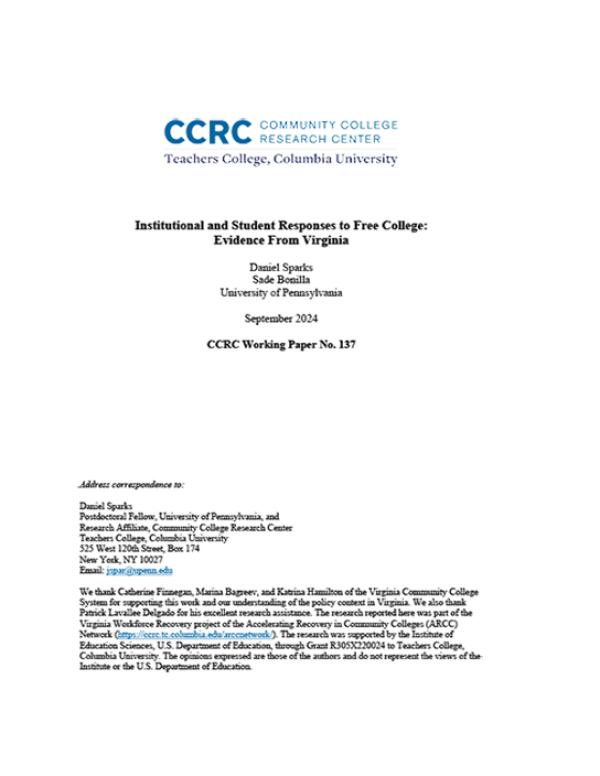
More than half of states have implemented tuition-free college policies aimed at reducing attendance costs and incentivizing enrollment. The authors of this paper review the academic literature on the design features and impacts of these tuition-free policies and analyze an initiative Virginia implemented in 2021 called Get a Skill, Get a Job, Get Ahead (G3), which provides tuition-free community college to students enrolled in eligible associate degree, certificate, and noncredit occupational training programs in five high-demand fields.
The descriptive analysis of G3 from 2016-17 through 2022-23 shows that both institutions and students responded to the tuition-free messaging and eligibility criteria. Specifically, G3-eligible institutional program offerings and student enrollment in such programs both increased by roughly 30% within the first two years of program implementation. While Virginia’s tuition-free policy promotes enrollment in targeted occupational programs, overall enrollment effects are partially offset by a 3% enrollment reduction in aid-ineligible transfer-oriented programs. To promote skill development and improve labor market outcomes, policymakers should ensure that programs eligible for tuition-free college include pathways to longer term credentials.
